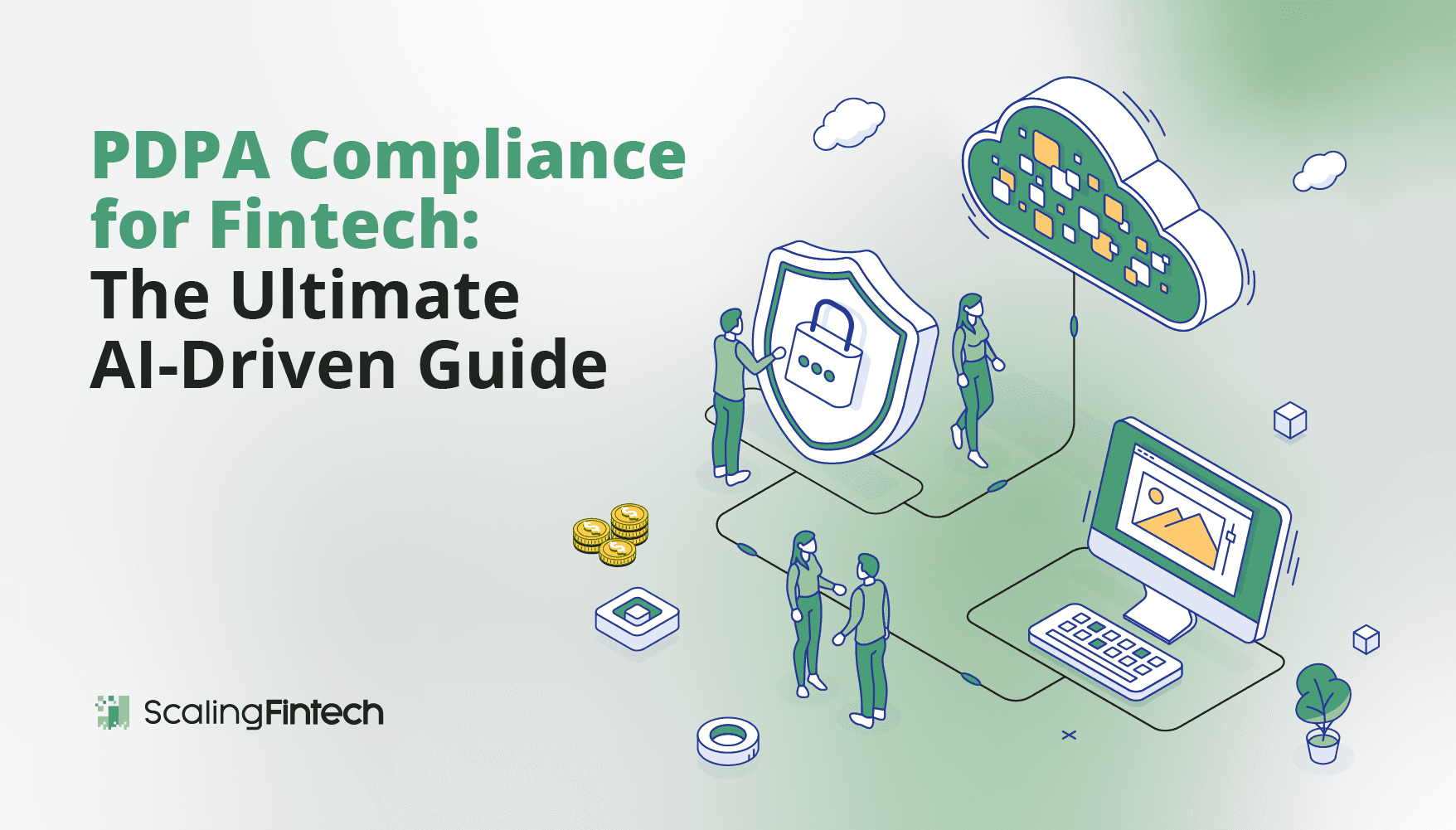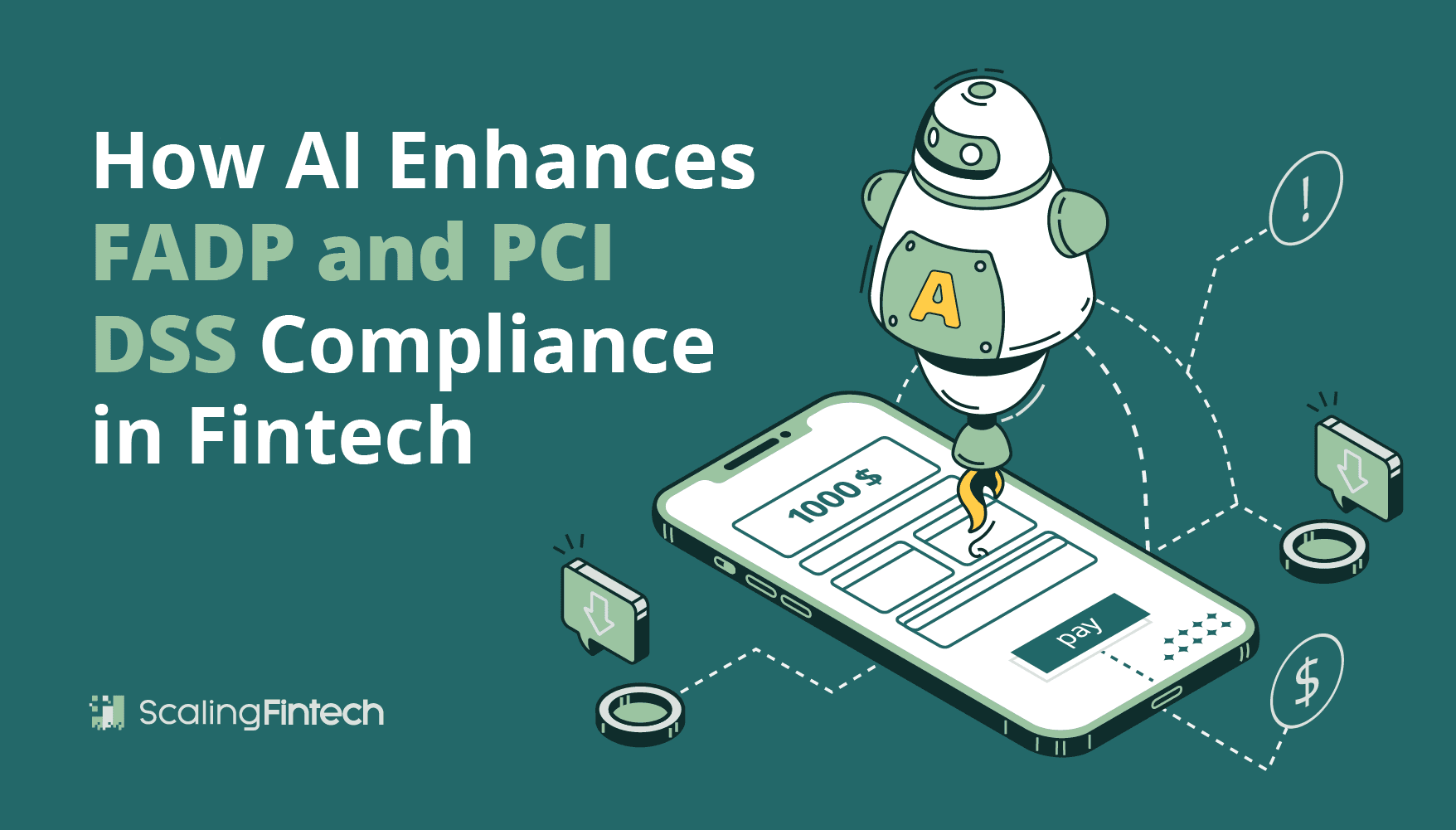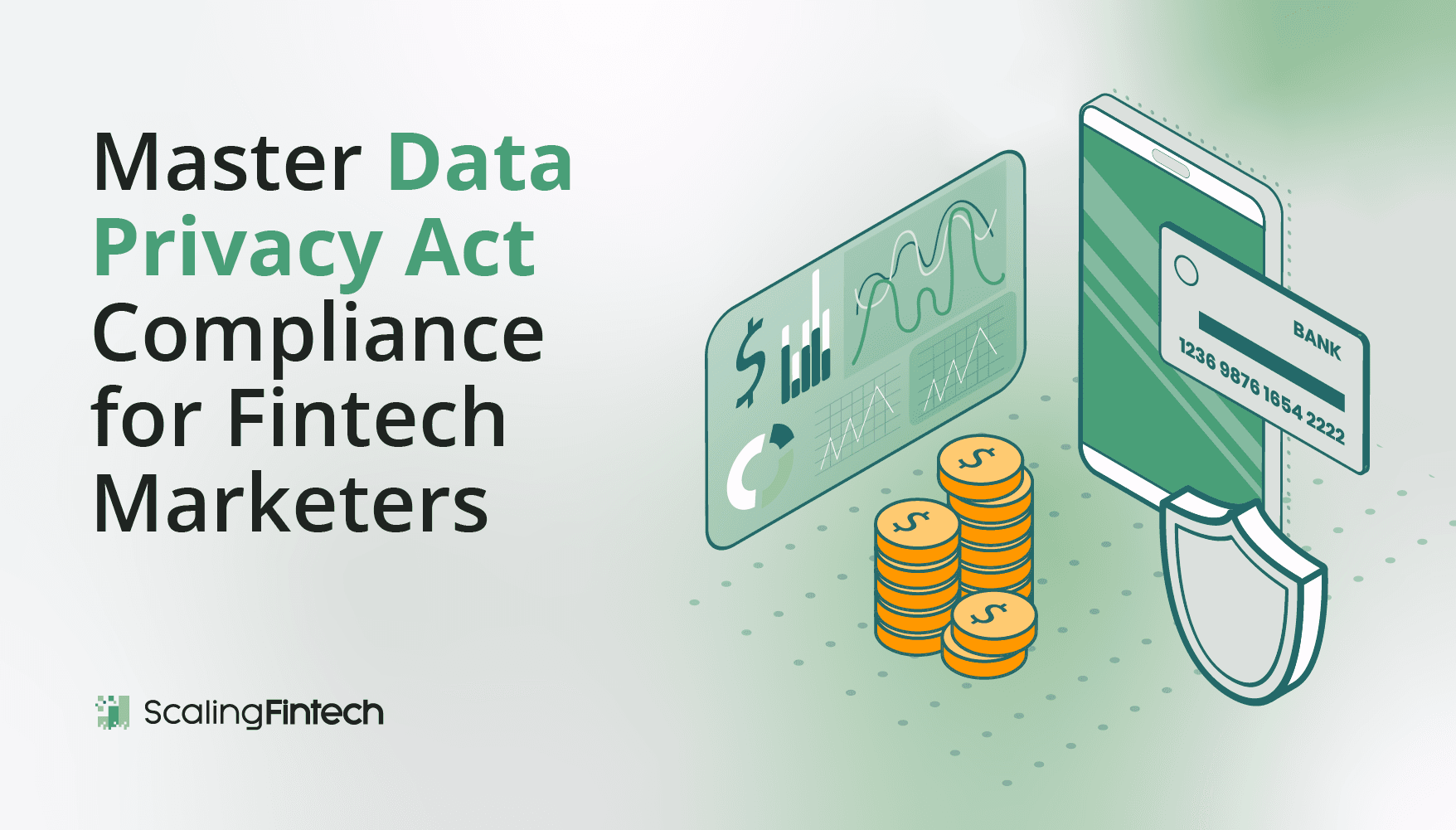Ensure your fintech meets PDPA rules with our AI checklist. Protect data, gain trust, and simplify processes to comply with Thailand’s standards.
Introduction to PDPA Compliance for Fintech Companies Using AI in Marketing
In Thailand, fintech companies face unique challenges in protecting customer data while leveraging AI for marketing. The Personal Data Protection Act Thailand (PDPA stands for Personal Data Protection Act) sets high standards for data protection, requiring fintech companies to safeguard sensitive information effectively. For fintech firms, achieving PDPA compliance isn’t just about avoiding penalties—it’s crucial for building customer trust and ensuring long-term growth in the fintech industry.
This guide offers an AI-driven PDPA compliance checklist tailored to help fintech companies meet regulatory standards in their marketing. From identifying compliance gaps to implementing data security protocols, each step is designed to ensure alignment with Thailand’s regulations. Understanding what is PDPA Thailand and how it compares to other regulations (GDPR vs PDPA) is essential for companies operating in the global market.
Why PDPA Compliance Matters for Fintech Companies in Thailand
Recent surveys reveal the importance of PDPA compliance:
- 81% of organizations prioritize PDPA compliance to maintain their reputation.
- 75% see compliance as essential for building customer trust.
PDPA compliance in Thailand helps fintech companies by:
- Enhancing brand credibility
- Building customer trust
- Gaining a competitive edge
- Protecting against fines up to THB 5 million and potential criminal charges
Non-compliance with PDPA law Thailand can be costly. Yet, following it promotes growth and builds trust with customers, both in Thailand and abroad. Today, Regulatory compliance is not just a legal requirement. In our data-driven world, it is crucial for businesses.

Leveraging AI for Effective PDPA Compliance in Fintech Marketing
AI-driven solutions can streamline PDPA compliance by automating key tasks, minimizing errors, and enhancing personal data protection. Here’s how AI can support PDPA compliance in fintech marketing:
- Automated Data Classification: AI categorizes sensitive data PDPA quickly, tagging it for secure handling.
- Real-Time Consent Management: AI tools automatically update and track customer permissions to meet PDPA consent requirements, considering factors like the Thailand age of consent.
- Predictive Risk Assessment: AI detects potential compliance risks early, allowing proactive measures in risk management.
- Smart Data Monitoring: AI continuously scans for unauthorized data access, protecting data integrity.
💡 Pro Tip: AI is powerful for automating compliance, but human oversight remains essential. Regularly review AI-generated reports and adjust parameters to stay aligned with PDPA regulations and Thailand data protection guidelines 3.0.
A hybrid approach that combines AI automation with human supervision ensures compliance accuracy and strengthens customer trust. Keep AI systems updated to reflect the latest PDPA guidelines and industry standards for a responsive compliance framework.
PDPA Compliance Checklist for Fintech Companies Using AI in Marketing
Here’s a step-by-step PDPA audit checklist, specifically designed for fintech companies integrating AI in their marketing operations.
1. Conduct a PDPA Compliance Gap Analysis
Objective: Identify gaps in your personal data handling practices relative to PDPA compliance.
Actionable Tips:
- Map data collection, processing, and storage processes through data mapping.
- Evaluate existing privacy controls and areas for improvement.
Example: A fintech company’s gap analysis revealed unencrypted data storage. They implemented encryption protocols to rectify this.
2. Implement Data Collection and Consent Management
Objective: Ensure transparency and compliance in data collection practices.
Actionable Tips:
- Use AI systems to track, manage, and verify customer consent, respecting data subject rights.
- Provide clear opt-in and opt-out options.
Example: An AI-powered consent tool automatically prompts users to update permissions after policy changes, ensuring seamless compliance.
3. Strengthen Data Security and Access Controls
Objective: Establish protocols to secure sensitive personal data and control access.
Actionable Tips:
- Implement multi-layer security, including encryption and two-factor authentication.
- Use AI to monitor access patterns and detect suspicious activities.
- Manage third-party access and cross-border data transfers carefully.
Example: AI detected unusual login attempts, triggering a lockdown and preventing data exposure.
4. Set Up Regular Data Audits and Compliance Monitoring
Objective: Maintain continuous compliance through regular audits.
Actionable Tips:
- Schedule monthly or quarterly audits with automated compliance checks.
- Use AI to monitor for real-time compliance issues in data processing and retention.
Example: An audit uncovered outdated user permissions, prompting a database update to reflect active consent only.
5. Establish a Data Breach Response Plan
Objective: Develop a structured response plan to manage data breaches effectively.
Actionable Tips:
- Use AI for immediate breach detection and automated response actions.
- Create clear escalation and notification protocols.
Example: AI detected an anomaly, issued an alert, and the incident team managed the breach within the PDPA-required notification timeframe.

Best Practices for PDPA-Compliant AI-Driven Marketing in Fintech
To achieve PDPA compliance in AI-driven marketing, follow these best practices:
- Implement AI Monitoring Across Channels: AI can flag non-compliant activities in real-time across multiple channels.
- Automate Compliance Checks for Marketing Content: AI tools can screen content for PDPA compliance before it’s published.
- Maintain Complete Audit Trails: Document every compliance check to ensure a reliable audit trail.
- Adopt Privacy by Design: Integrate data protection measures into all processes from the outset.
- Appoint a Data Protection Officer: Designate a responsible person to oversee PDPA compliance efforts.
- Practice Data Minimization: Collect and retain only the personal data necessary for specific purposes.
💡 Pro Tip: For affiliate marketing, live monitoring tools help catch non-compliant promotions. Automated self-fix capabilities allow quick resolution, minimizing risks.
This combined approach enables marketing teams to focus on strategy while AI handles compliance heavy lifting, ensuring data protection standards are met. Effective data governance is key to maintaining PDPA compliance in the long term.
Common PDPA Compliance Challenges for Fintech Companies and How to Overcome Them
As fintech companies expand, they may face unique PDPA compliance challenges. Here’s how to address them effectively:
1. Technical Challenges
- Data Localization: PDPA mandates local data storage in Thailand. Use AI tools to flag any non-compliant data transfers.
- Encryption Complexities: End-to-end encryption is essential. Regularly update encryption protocols to maintain data security.
2. Regulatory Navigation
- Solution: Stay updated on PDPA requirements by communicating with regulators and using AI-driven compliance tracking tools. Familiarize yourself with Thailand data protection guidelines 3.0.
- Example: A fintech company collaborated with regulatory experts to clarify PDPA guidelines, minimizing ambiguities.
The Future of PDPA Compliance in Fintech: The Role of AI and Data Privacy
The fintech sector is evolving rapidly, with new privacy technologies offering stronger compliance solutions. Key trends to consider include:
- Privacy-Enhancing Technologies: AI-driven encryption and anonymization enhance personal data protection.
- Real-Time Compliance: AI-powered RegTech solutions provide instant monitoring and compliance reporting.
- Smart Data Management: AI’s automated data classification minimizes data misuse risks.
- Enhanced Data Portability: Improved systems for secure and efficient transfer of personal data.
- Ethical AI and Automated Decision-Making: Ensuring AI systems comply with PDPA regulations on automated processing.
💡 Pro Tip: AI’s adaptability is essential in an evolving regulatory environment, but human oversight ensures informed decision-making.
Future PDPA compliance will rely on a blend of AI automation and human judgment, creating a framework that evolves with regulatory changes and enhances customer trust. This includes addressing challenges related to data erasure and data rectification requests.
How Scaling FinTech Can Help with PDPA Compliance (Thailand’s Personal Data Protection Act)
Scaling FinTech provides AI-driven, PDPA-compliant advertising solutions tailored for fintech companies. Our strategies aim for lead generation, conversions, and growth. They must also comply with PDPA standards.
Why Partner with Scaling FinTech?
- Precision: Customized campaigns aligned with PDPA compliance and growth goals.
- Transparency: Real-time reporting provides visibility into performance and compliance.
- Client-Centric Growth: Solutions designed for impact and ROI, prioritizing PDPA compliance.
Get Started Today
Schedule a free consultation with Scaling FinTech. Learn how PDPA compliance can give you an edge in data protection.
Conclusion: Achieving PDPA Compliance for Sustainable Fintech Growth
For Thai fintech companies, PDPA compliance is essential for success. AI-driven solutions simplify compliance, ensuring efficient operations and strong personal data protection. By combining advanced technology with human oversight, fintech firms can build customer trust and foster growth while meeting their obligations as data controllers and data processors.
Implement Your PDPA Compliance Checklist Today
Now is the time to reinforce your PDPA compliance. Consider these steps:
- Schedule a Compliance Audit: Regularly review data protection measures.
- Update Your Privacy Framework: Align with the latest PDPA standards.
- Train Your Team: Ensure everyone understands compliance roles.
- Deploy AI Solutions: Automate compliance checks and data monitoring.
- Conduct Privacy Impact Assessments: Regularly evaluate the impact of your data processing activities on individual privacy.
Need assistance with PDPA compliance? Contact our expert team at Scaling Fintech for tailored guidance on integrating AI-driven solutions into your operations.



